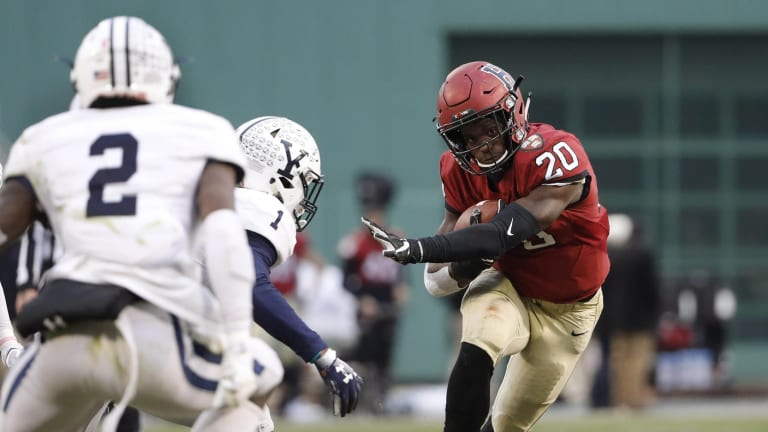
A JERSEY GUY: Ivy League Ready To Be A Trendsetter--Again

The Ivy League might not provide the highest quality of play in college football, but in taking decisive measures, the conference which was part of the birth of CFB 151 years ago, might again lead the way in a post Covid-19 world.
Here's why.
According to several sources within the Ivy League itself and in the ever changing world of CFB coaches dealing with protocols involved in a resumption of the sport, the Ivy League is formulating a restart plan, which could be finalized and released in the next few weeks.
The plan has two options, one of which is more radical than the other.
The first would be to open the 2020 season in late September with a 7-game schedule comprised of only conference opponents.
The Ivy League is already different than its FCS brethren by playing only a 10 game (no playoffs) regular season. This plan would eliminate the non-conference opponents and conclude a week before Thanksgiving.
The second plan, which is gaining momentum because of the increasing number of positive Covid-19 cases in the country, would shut down football until next spring, with a start up (for practice) in March and another 7-game (conference opponents only) beginning in April and concluding in mid-May.
These plans are not unique to the Ivy. Most of all of the Power 5 and Group of 5 FBS conferences have similar contingency plans in place.
Not that anyone should be surprised if the Ivy League makes a decision to create its own footprint.
In 1869 college football played its first game at Rutgers, with Ivy League member Princeton as the first opponent, a match up of geographical convenience as much as anything, since the two campuses are only 17 miles apart.
The Ivy has steadfastly refused to allow its football teams to play in post season college football playoffs and until a few years ago also would not budge on the SOP scheduling of conference tournaments.
Thus it was not a shock that when CoVid-19 first became a major issue last March, the Ivy League was the first conference to announce the cancellation of its 4-team conference basketball tournament.
The first part of the summer has been filled with plans an initial movements of college football making re-start plans for the fall.
But there have as many stumbles as there have been steps forward, with growing number of positive Covid-19 cases among the returning players.
That has prompted a growing sense of pessimism throughout college football that the season will be lucky to start on time and even luckier to be completed without a suspension of play during the season.
There is a growing trend supporting the plans of just postponing the 2020 season until the spring or simply cancelling it completely and restart in the summer of 2021.
As is the case in almost all of the major college sports and throughout the world of professional sports, dollars and cents are competing against common sense.
The Ivy League, which is not driven in almost all cases, by bottom line numbers in college football, may be taking the most realistic approach.
And as it did in college basketball, it may be ready to make the first official announcement in the ever changing world of college football.